When your fridge stops cooling or your freezer refuses to stay frozen, the panic is real. Food goes bad, drinks warm up, and you’re left wondering if you need a new appliance or just a quick fix. The good news? Most problems can be spotted and solved without a major hassle, especially with a local expert on speed‑dial.
First thing’s first – check the basics. Is the unit plugged in? Is the breaker tripped? It sounds simple, but a loose plug or a blown fuse is behind many "dead" complaints. Next, pull the fridge away from the wall and give the coils a good vacuum. Dust builds up fast, and clogged coils make the compressor work harder, leading to poor cooling. A clean coil often brings the temperature back to normal in a few hours.
Here are the top issues we see in Bognor Regis homes and what you can try before calling a tech.
1. Fridge isn’t cooling but the light is on. The thermostat may be set too low or the door seal could be leaking air. Feel around the edge of the door – if you feel a draft, the gasket needs cleaning or replacement. Warm air entering the cabinet forces the fridge to run constantly, which can overheat the compressor.
2. Freezer not freezing. Check the freezer’s temperature setting; it should be around –18°C (0°F). If the setting is correct, listen for the compressor humming. A silent compressor often means a power issue or a faulty start relay. Swapping the relay is a simple DIY job if you’re comfortable with basic tools.
3. Frost build‑up inside the freezer. This usually points to a faulty defrost timer or heater. You can defrost manually by unplugging the unit and letting it sit for a few hours, then clean the ice and restart. If the frost returns quickly, it’s time for a professional to check the defrost cycle.
4. Weird noises. Rattling or buzzing can be caused by a loose fan blade or a worn motor. Unplug the fridge, remove the back panel, and see if anything is obviously loose. Tightening a screw often stops the noise.
DIY fixes are great for minor hiccups, but there are clear signs you need a qualified technician.
If you notice water pooling inside or under the fridge, the drain tube is likely clogged. Cleaning it requires disassembly that’s best left to someone with experience. A leaking refrigerant or a burnt‑out compressor is another red flag – these parts need specialized tools and proper disposal.
Also, if your fridge is over ten years old and the repair bill starts to approach the cost of a new unit, weigh your options. Sometimes replacing the appliance saves money in the long run, especially with newer, energy‑efficient models.At Bognor Regis Appliance Repair Experts, we’ve seen every make and model on the market. Our technicians arrive on time, diagnose the issue quickly, and explain what needs fixing in plain language. We’ll give you an upfront price before any work begins, so there are no surprises.
Keeping your fridge and freezer in top shape is mostly about regular maintenance: clean the coils every six months, check door seals, and defrost when ice builds up. When the problem outgrows a quick fix, give us a call – we’ll have your kitchen back to normal without breaking the bank.
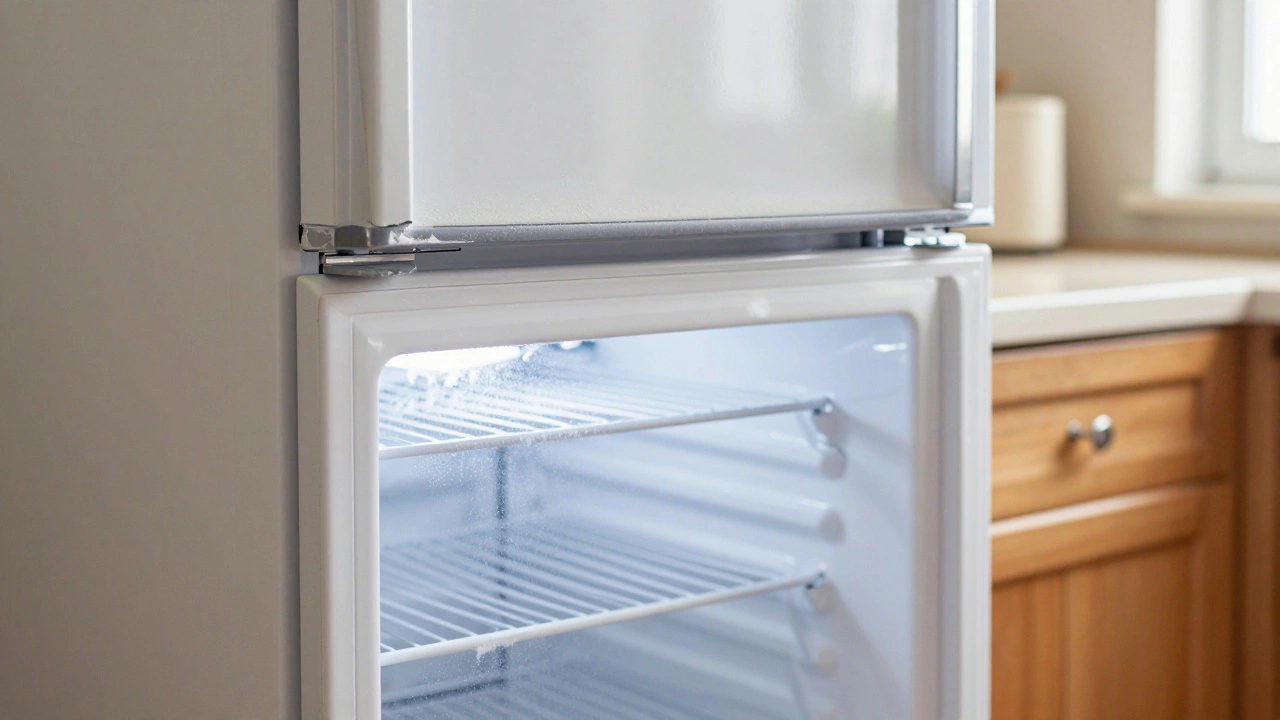
Is it worth repairing a 7-year-old fridge freezer? Usually yes-if the repair is under £200 and the unit still runs efficiently. Learn what fixes make sense, which problems mean replacement, and how much you’ll save on energy bills.

Fridge warm but the light works? Find out why your refrigerator isn’t cooling, common causes, fixes, and when to call in an expert. Easy troubleshooting tips inside.

Thinking about fixing your 7 year old refrigerator? This article breaks down the real costs, reliability, and what you should watch for before you pay for repairs. You’ll find clear tips on when it’s smarter to repair or replace, how much you’ll likely spend, and some key things most people forget to check. Get the real scoop from an expert so you don’t waste time or money.

Why would a freezer suddenly stop working? This article uncovers the most common reasons, from electrical hiccups to sneaky broken parts. Get clear tips to troubleshoot on your own before calling in the pros. You'll also find surprising facts—like a forgotten coin trick to check freezing power. Whether it's food loss or a mystery beep, you'll get straight answers and a path to a cold fix.

Ever opened your freezer to find squishy ice cream or thawed food when it should be rock solid? This article digs into the real reasons your freezer refuses to stay frozen, from simple mistakes to sneaky mechanical fails. Learn how to spot common culprits, fix minor issues yourself, and know when things are actually serious. Packed with practical tips and straightforward advice, you'll get the cold facts and solutions you need. No jargon, just help you can actually use.

Deciding whether to repair or replace a refrigerator can be a puzzling task for most homeowners. Factors like the age of the fridge, the cost of repairs, and energy efficiency play crucial roles in this decision. Getting a new fridge might seem attractive with the latest features, but sometimes repairing your old one is the better choice. Before making a move, it’s essential to weigh the pros and cons to make an informed choice.
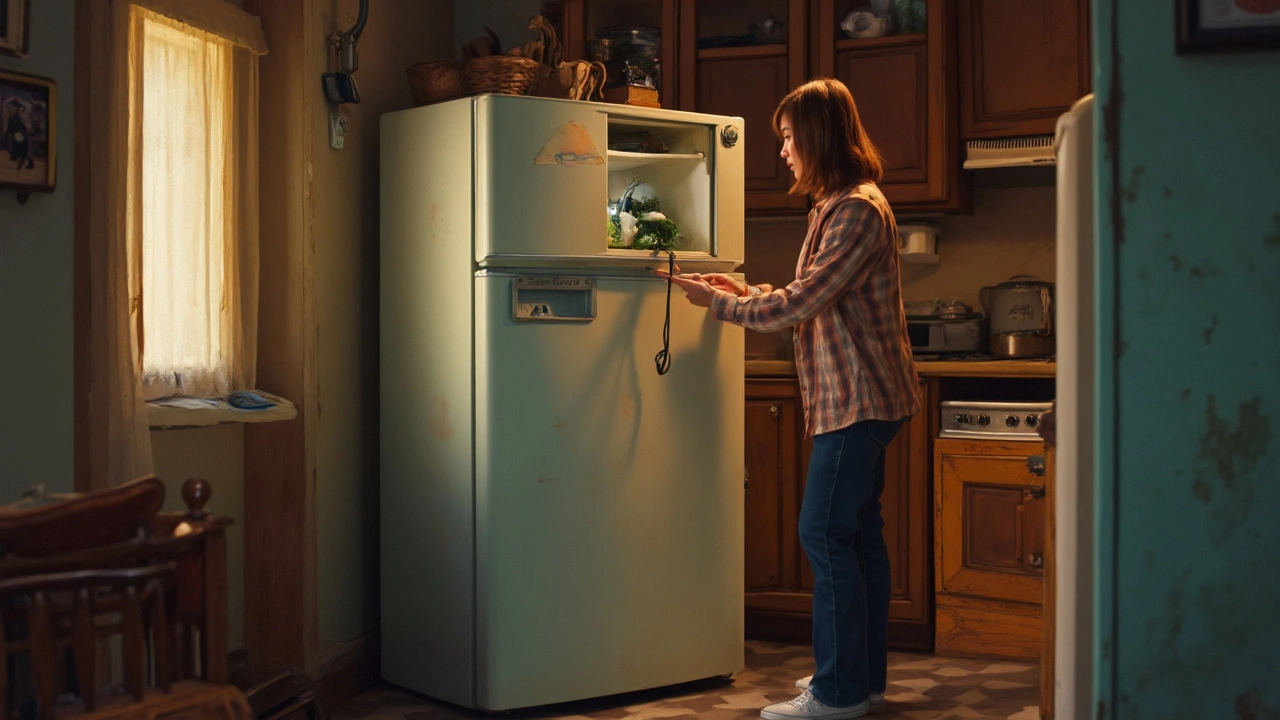
When your refrigerator suddenly stops working, it can cause quite a panic. But before calling in the repair services, there's one crucial thing you should check first: the power source. This step is often overlooked but can save you both time and money. Reliability and efficiency in troubleshooting can help bring your fridge back to life or at least determine the next best steps.

Looking for a reliable refrigerator that won't leave you struggling with frequent repairs? Discover which fridge brands are known for their durability and efficiency. This article breaks down the brands with the least reported problems, providing valuable insights from customer reviews and expert opinions. Learn practical tips on how to choose a fridge that suits your needs and keeps your kitchen running smoothly.

Deciding between repairing and replacing a freezer can be tricky. This article guides you through evaluating repair costs, expected lifespan, and energy efficiency before making a decision. It provides practical advice to help you make an economical choice, whether to fix or replace your freezer. Learn important factors to consider, like repair frequency and environmental impact, to ensure you spend wisely.
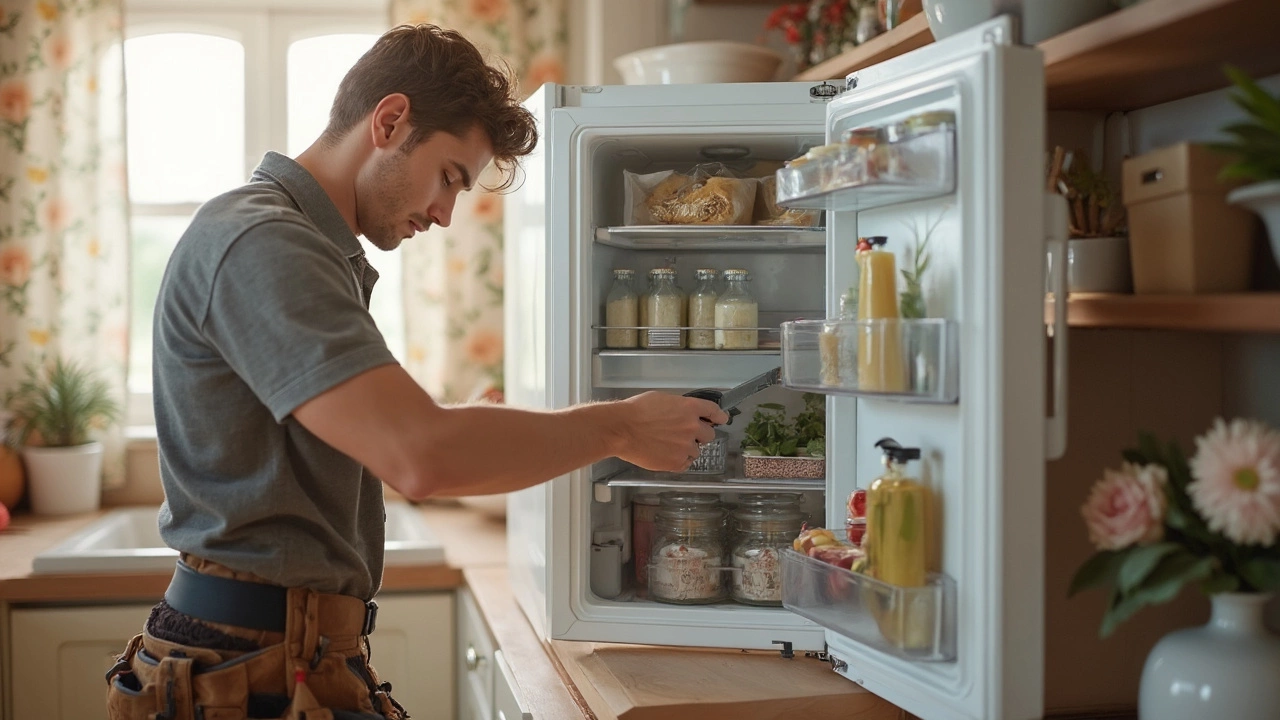
Resetting a freezer compressor may sound daunting, but it's an essential skill for maintaining your appliance's efficiency. Compressors can occasionally need a reset to function properly, potentially saving you from costly repairs or replacements. This article walks you through the steps to safely reset your freezer compressor and offers tips to prevent future issues. Understanding when and why to reset your compressor can keep your freezer running smoothly and extend its lifespan.
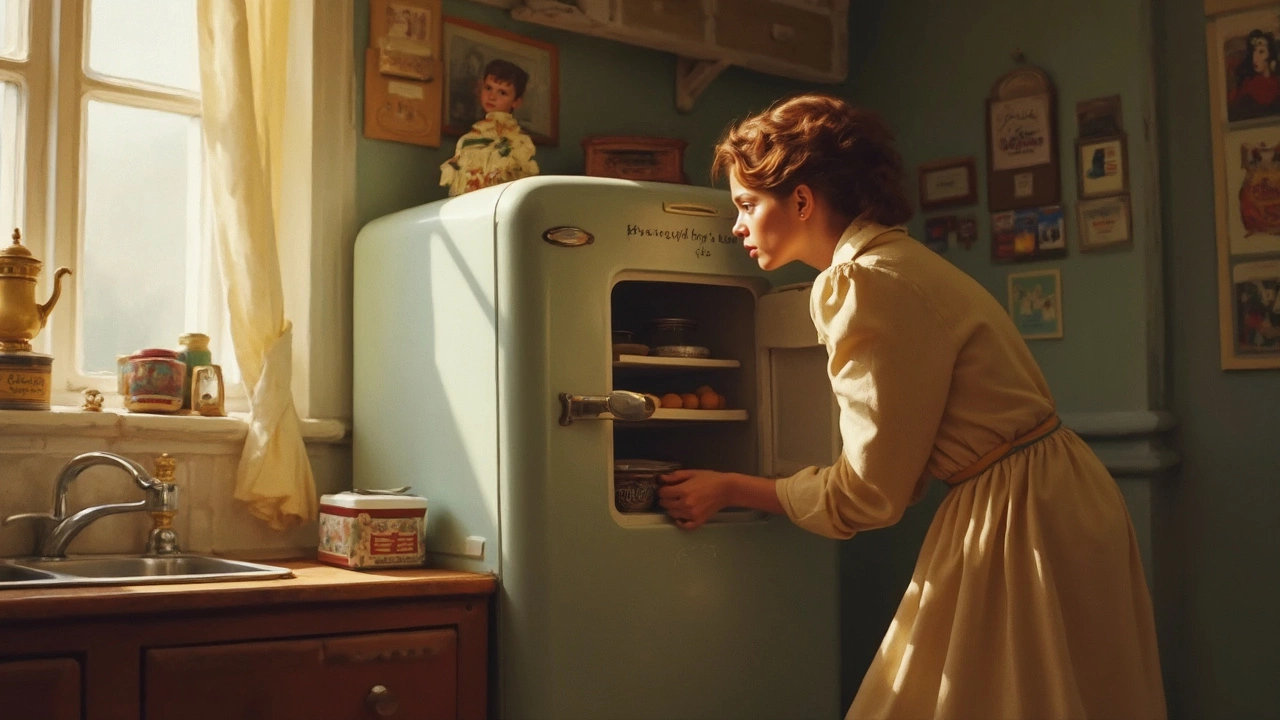
Fixing your fridge on your own can be a real money-saver if you know where to start. First, you've got to figure out what's actually wrong before grabbing your toolbox. With some basic tools and a little patience, you might just handle common issues like leaks, noisy operation, or poor cooling effectively. But sometimes, you also need to know when it's time to bring in a professional.
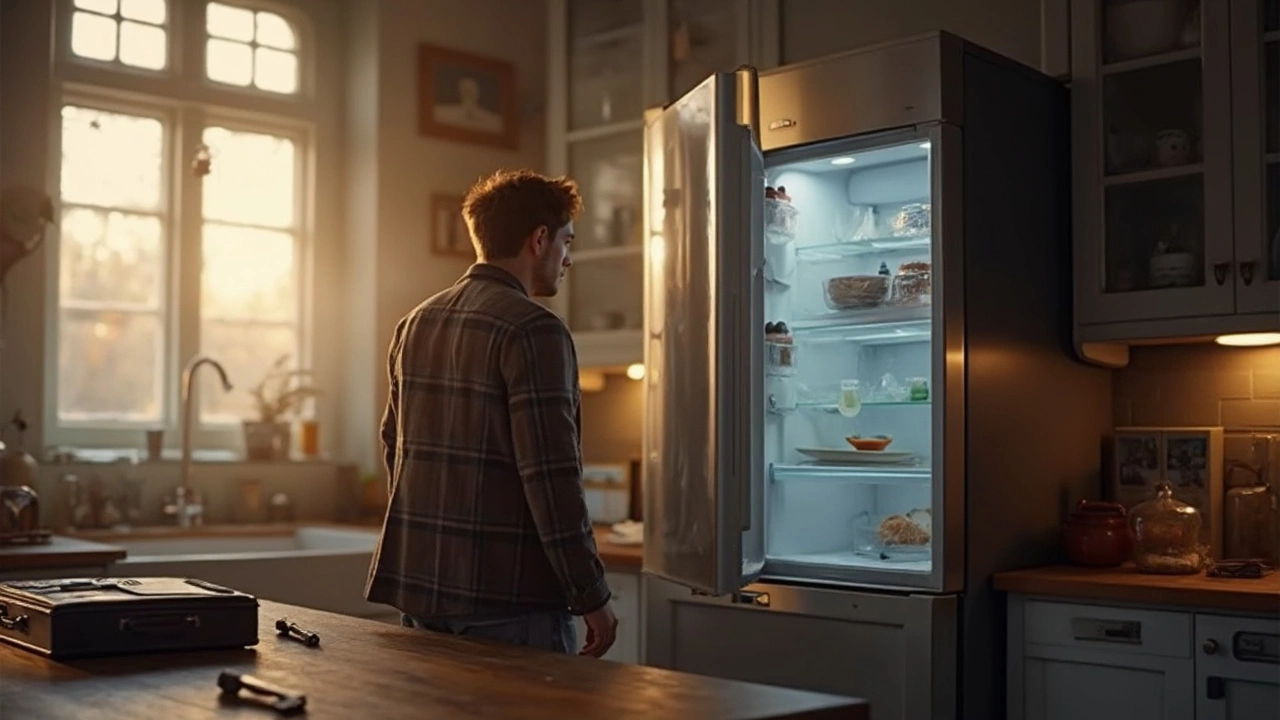
If your freezer isn't doing its one job—keeping things cold—you're in a pickle. But before you start shopping for a new one, there are a few things you might try to get it back to work. From checking the power source to cleaning coils, fixing cooling problems can often be simple and straightforward. Let's explore some potential solutions to get your freezer chilling again.

Experiencing a sudden loss of hot water can be inconvenient and potentially alarming. Understanding common reasons for this issue, such as thermostat malfunctions or a broken heating element, can help you troubleshoot the problem. Sometimes the solution is as simple as relighting the pilot light or adjusting the thermostat settings. For more complex issues, professional repair might be necessary. This article provides insightful tips and practical information to help you get your hot water flowing again.
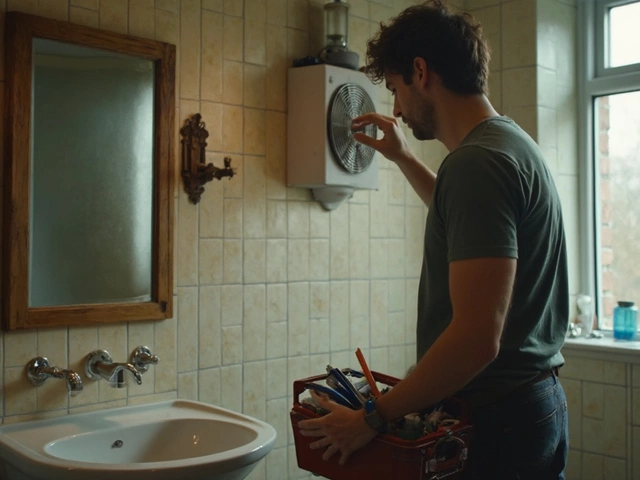
Thinking about swapping out your old extractor fan? This guide digs into how easy (or not) it really is to replace an extractor fan in your bathroom or kitchen. Get the lowdown on what tools you'll need, common surprises people miss, and what makes some fans trickier than others. If you're not sure when to call in a pro, we've got your back there, too. Get ready for a clear, no-nonsense breakdown.
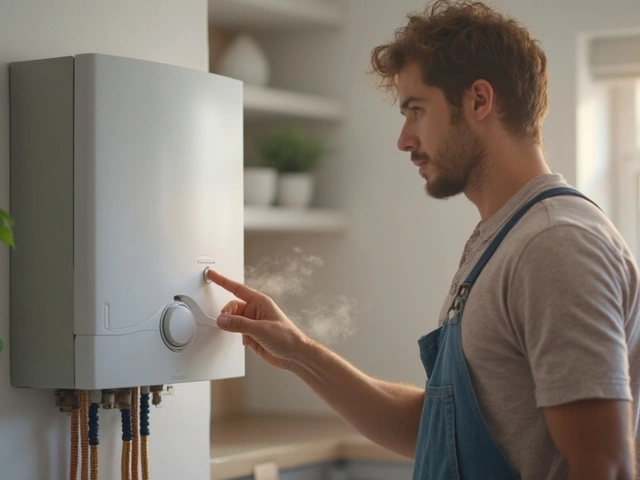
Dealing with a water heater that keeps tripping can be a headache—hot water one minute and a cold shower the next. This article breaks down the most common reasons for this irritating problem, giving you clear steps for figuring out if it’s a simple DIY fix or if you should call in a pro. You’ll get straight talk, not complicated jargon or long-winded explanations. Learn what to check, what parts usually fail, and when your water heater might just be on its last leg. Get the confidence to handle the problem and save yourself a ton of hassle.

Microwaves seem invincible until they suddenly stop working—usually right when you're hungry. This article tackles what actually breaks down most often in a microwave, from simple blown fuses to tricky magnetrons. You'll learn the telltale signs for each failure, why these things wear out, and how to figure out if it’s something you can fix yourself. Plus, there are practical tips on keeping your microwave running smoother for longer. Perfect for anyone tired of cold leftovers and expensive repair bills.
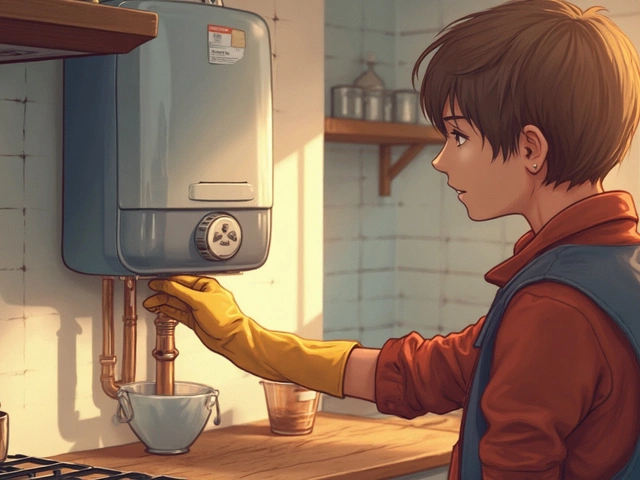
Resetting a water heater might seem simple, but it involves precaution. This article delves into when and why a reset might be necessary and explores the safety considerations involved. Learn about common signs that indicate a reset is due and the correct way to carry out this task. Discover the underlying causes of water heater issues to prevent future resets.